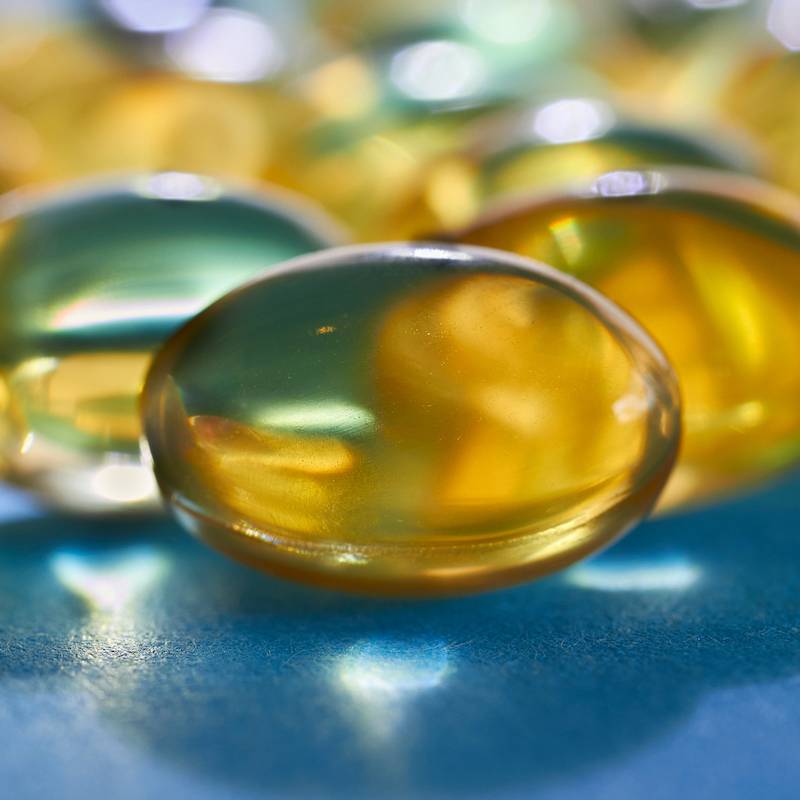Your eyes are essential to your quality of life, and maintaining their health is vital. While a balanced diet and good habits play a role, adding the right eye health supplements can give your vision a powerful boost. Here are five eye-friendly nutrients to consider.
1. Vitamin A & Beta-Carotene
Vitamin A is essential for healthy eyesight, especially for adapting to dim light. This nutrient supports the production of rhodopsin, a pigment in the retina that enables night vision. A deficiency in vitamin A can lead to night blindness and dry eyes.
How it helps
Vitamin A contributes to vision by maintaining the health of the retina, cornea, and conjunctival membranes. Vitamin A aids the eyes to produce certain pigments for the retina to function properly and form clear images. Lack of Vitamin A in the body often causes night blindness due to decrease in pigments production.
Additionally, its antioxidant properties protect eye tissues from free radical damage, reducing the risk of degenerative conditions like cataracts and age-related macular degeneration (ARMD).
Common sources

“Certain orange-coloured foods are excellent sources of vitamin A,” shared Dr Petrina Tan, a Senior Consultant Ophthalmologist at Eagle Aesthetics & Surgery. These can include sweet potatoes, carrots, pumpkins and mangoes.
Vitamin A is also in found in animal sources such as liver, eggs, and dairy products. Vitamin A supplements can be taken if dietary intake is low.
Adults generally need 10,000 to 25,000 units of vitamin A or 6 to 15 milligrams (mg) of beta-carotene daily as dietary supplements.
2. Lutein and Zeaxanthin
Lutein and zeaxanthin are antioxidants that also play part in maintaining eye health. Found abundantly in the macula and retina, these carotenoids act as natural filters, protecting the eyes from harmful high-energy light, including blue light from digital screens.
How it helps
These nutrients are known for their ability to protect and enhance vision by:
- Shielding the Retina
Lutein and zeaxanthin absorb blue light, preventing oxidative damage to retinal cells, a key factor in conditions like ARMD. - Enhancing Visual Function
They improve contrast sensitivity and reduce glare, supporting clearer, sharper vision, particularly in low-light conditions. - Preventing Cataracts
By neutralising free radicals, these carotenoids lower the risk of cataract formation.
Common sources

- Leafy green vegetables, such as spinach and broccoli
- Egg yolks
- Supplements in tablets or capsules
The recommended dose for lutein is 10 to 20 mg while zeaxanthin is 1 to 2 mg daily. Lutein and zeaxanthin may also come in combined pills. Research suggests that sufficient intake of the nutrients allows them to accumulate in the eyes to reduce the risk and slow down the progression of ARMD and cataracts.
3. Omega-3 Fatty Acids
Other than being known for supporting heart and skin health, omega-3 fatty acids such as DHA (docosahexaenoic acid) and EPA (eicosapentaenoic acid) can also improve eye health.
The retina of the eyes has a high concentration of omega-3 fatty acids to keep the eyes moist and protect the light receptors in the eyes for vision.
How it helps
Omega-3 fatty acids possess anti-inflammatory properties, which helps to lower the risk of chronic eye conditions such as diabetic retinopathy and AMD (age-related macular degeneration).
They also improve the quality and production of the eye’s tear film, reducing symptoms of dry eyes.
As DHA is a key structural component of the retina, adequate levels help maintain the retina’s integrity. In children, DHA is vital for proper visual development and function.
Common sources

Omega-3 fatty acids are not produced naturally by the body. Therefore, it is important to obtain sufficient omega-3 fatty acids from diet or supplements.
- Fatty fish (salmon, mackerel, and sardines)
- Nuts and seeds (flaxseed, walnut, chia seeds)
- Omega-3 fatty acid supplements such as fish oil capsules
The recommended doses of omega-3 fatty acids are 250 to 500 mg of combined EPA and DHA. Be sure to check the concentration of EPA and DHA in your supplements.
4. Bilberry Extract

Bilberry extract, derived from the small, dark-blue fruit of the bilberry plant, is rich in anthocyanins – antioxidants known for their anti-inflammatory and anti-aging effects.
This traditional remedy has long been associated with improving vision and maintaining overall eye function.
How it helps
Bilberry is believed to improve the eye’s ability to adapt to low light conditions, due to the antioxidant-rich anthocyanins. These compounds enhance blood flow to the eyes, potentially boosting night vision.
The antioxidant activity help neutralise free radicals, reducing oxidative stress on the retina and lowering the risk chronic conditions like ARMD.
For those who spend long hours in front of screens, bilberry extract may reduce eye strain by supporting ocular muscle function and improving microcirculation.
Common sources
- Bilberry extract supplements
Studies suggested taking total 160 to 480 mg of bilberry extract daily may help with eye dryness and fatigue from prolonged screen time. When choosing a bilberry supplement for eye health, look for products standardised for anthocyanin content to ensure potency and effectiveness.
5. Astaxanthin
Astaxanthin is a red-orange pigment derived from marine organisms. It stands out for its strong antioxidant properties.
How it helps
Astaxanthin can cross the blood-retina barrier, making it possible to protect the retinal cells from damage and inflammation. This may be helpful for people with cataracts, diabetic retinopathy and ARMD.
Studies suggest astaxanthin improves eye accommodation, the ability of the eyes to focus on near and far objects. This can help reduce eye strain caused by prolonged screen time or intense visual tasks.
With its anti-inflammatory properties, astaxanthin may alleviate symptoms of dry eye disease and other inflammatory eye conditions.
Common sources
- Seafood (algae, salmon, trout, krill, shrimp and crayfish)
- Yeast
- Supplements
The common doses to take are between 4mg to 12 mg once daily.
Should I Take These Eye Health Supplements?
Always consult a doctor or pharmacist for advice before starting any eye health supplements, especially if you have any existing medical conditions or take regular medications.
While supplements can support eye health, they are most effective when combined with a balanced diet, proper hydration, and regular eye exams.
Ensure your vision remains sharp and your eyes stay healthy for years to come by taking a holistic approach to your eye care!
Have a pressing question for a doctor? Medical Channel Asia has launched a community forum page where you can get questions answered by a medical specialist. Visit the community forum here.

